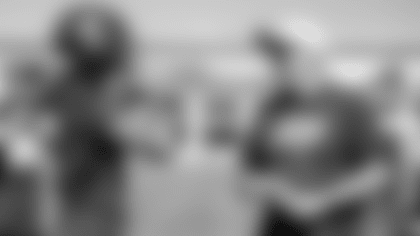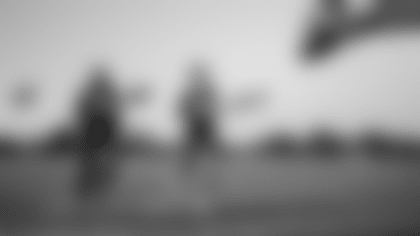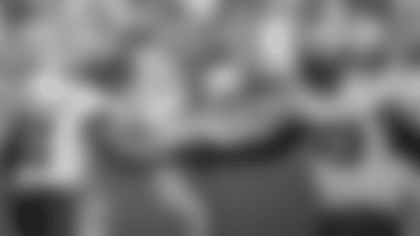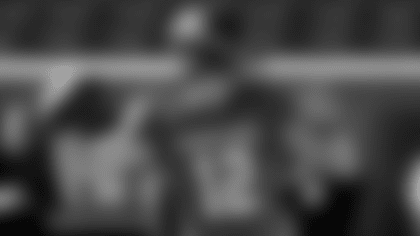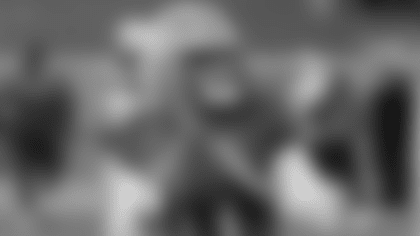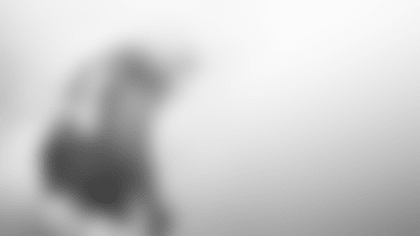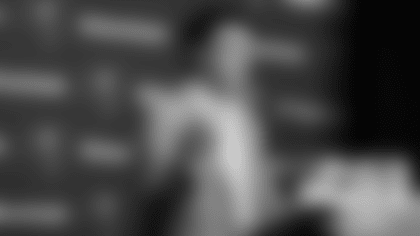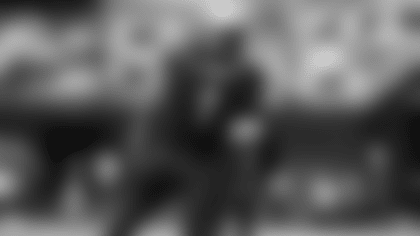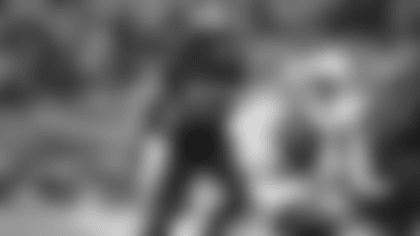Photos from the Buccaneers' victory over the Raiders in Super Bowl XXXVII in San Diego on January 26, 2003.

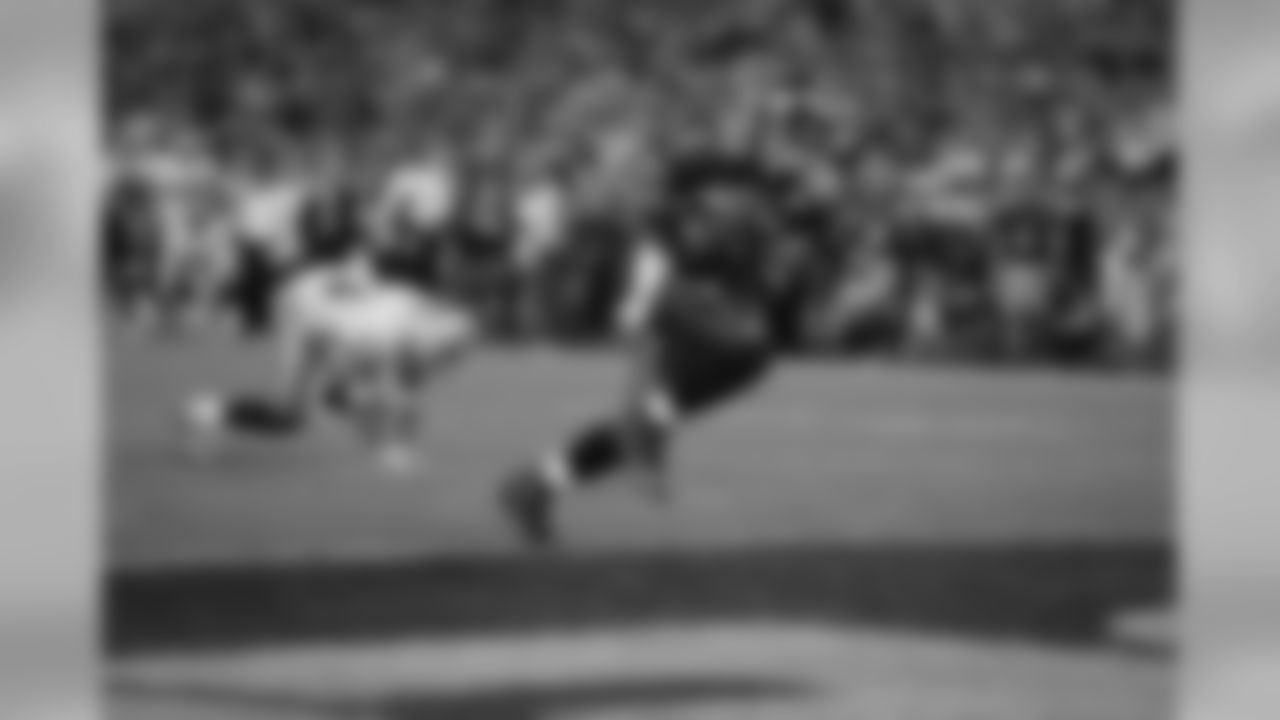
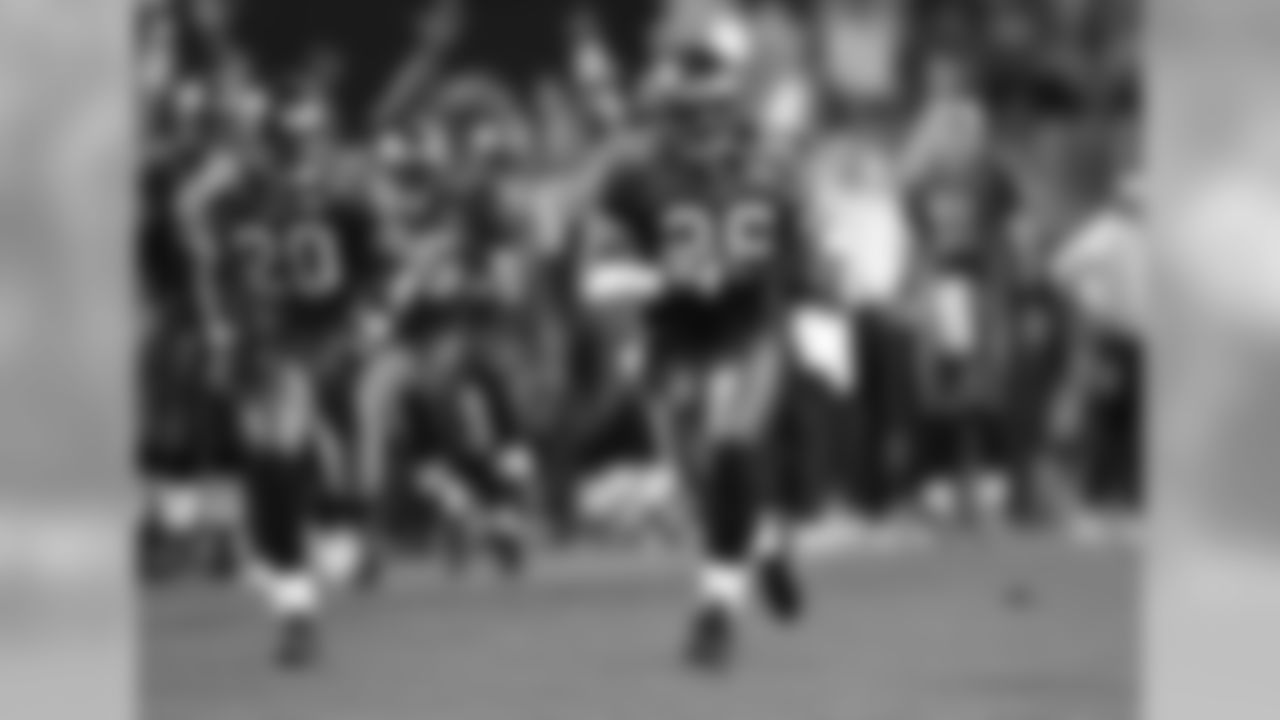
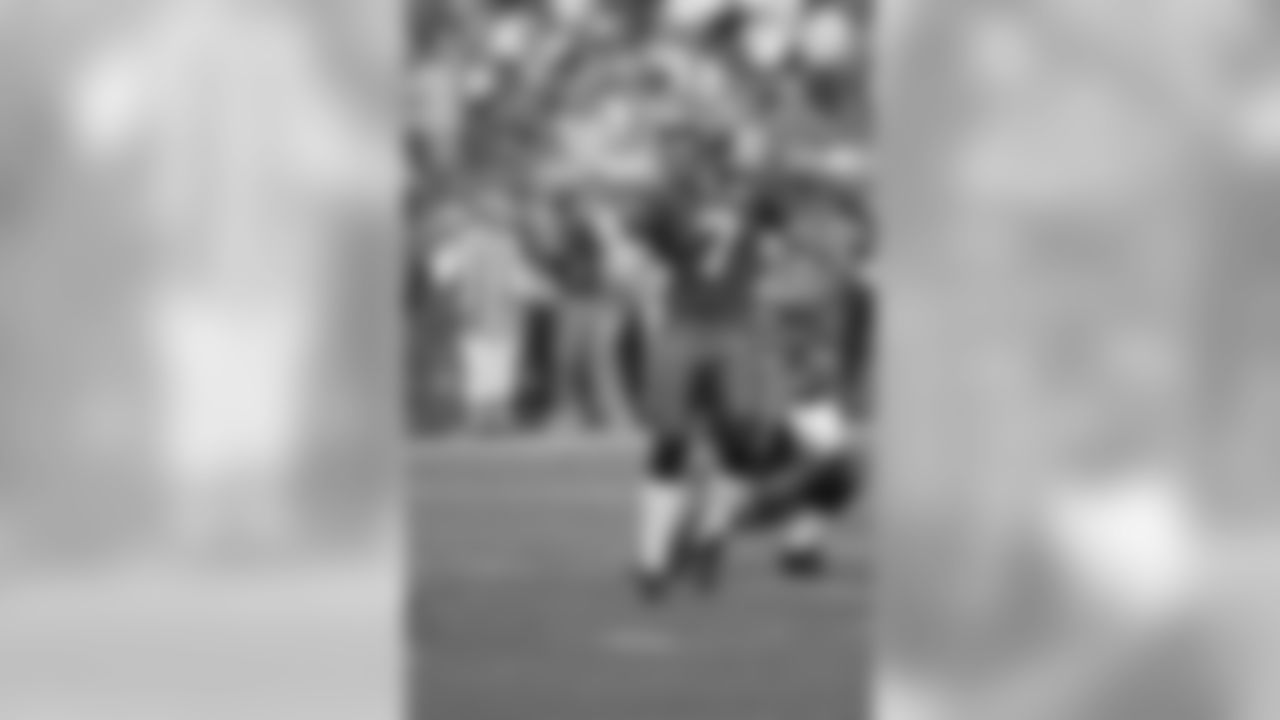
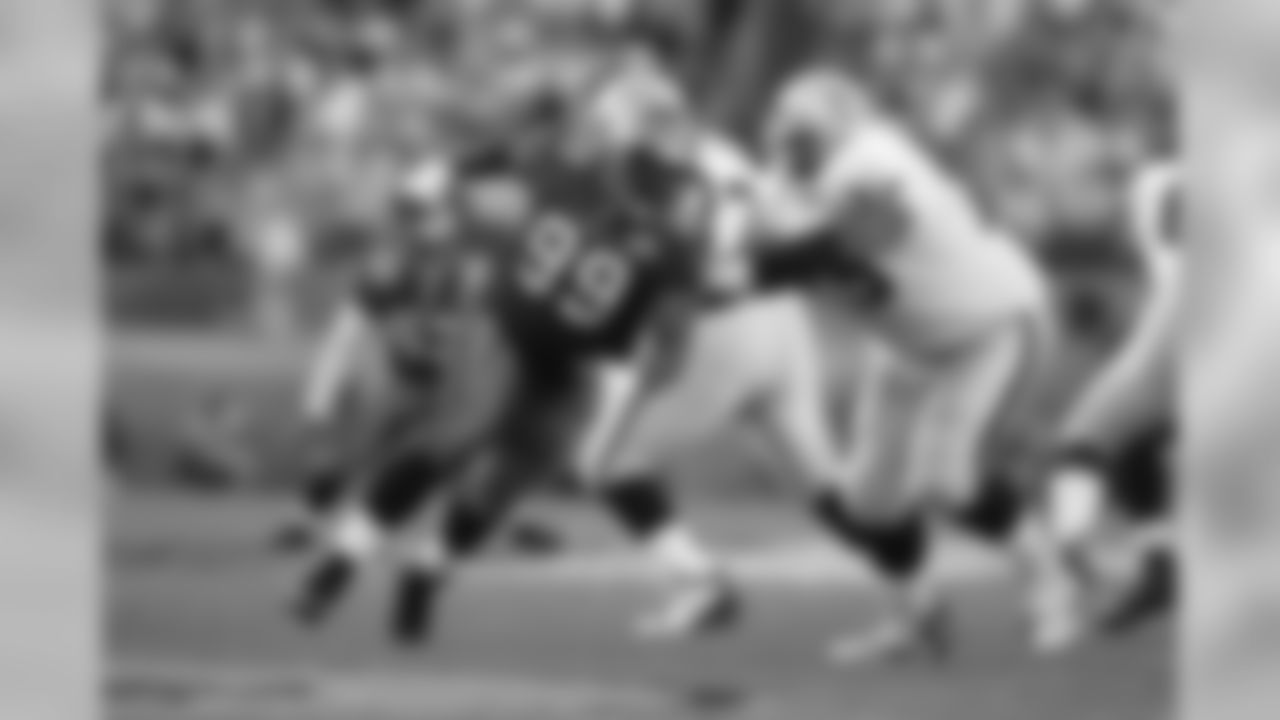
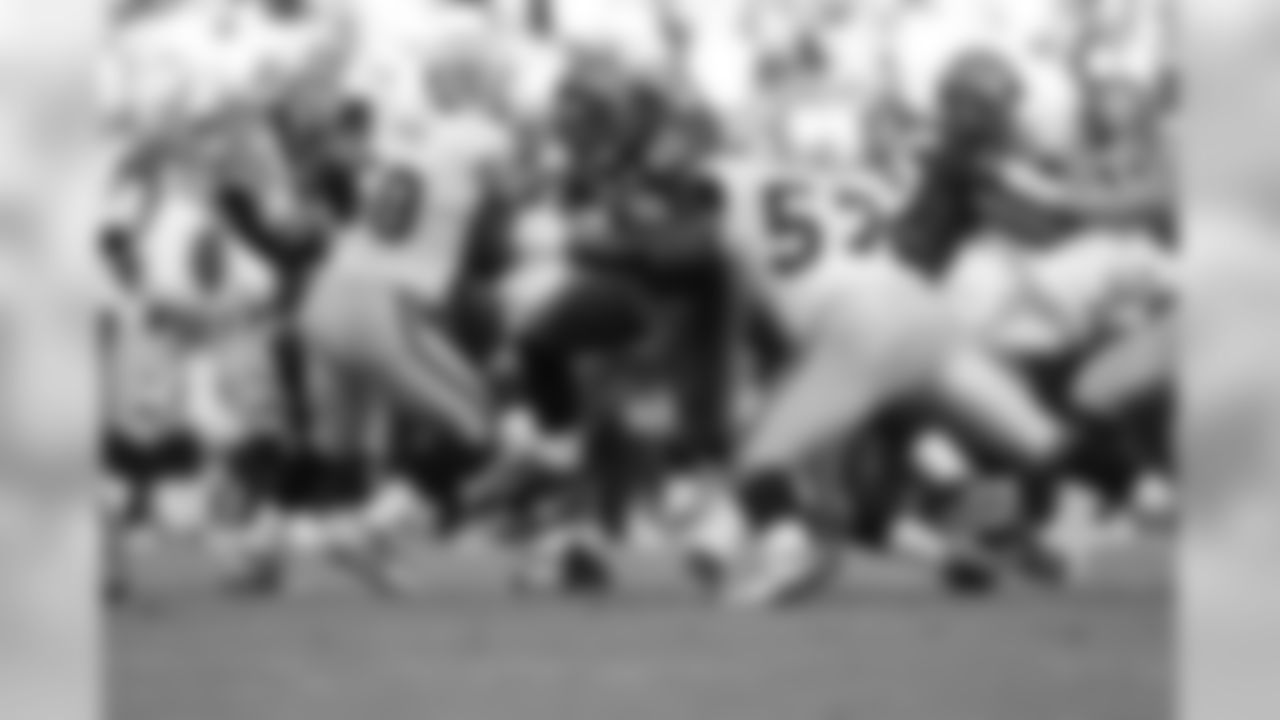
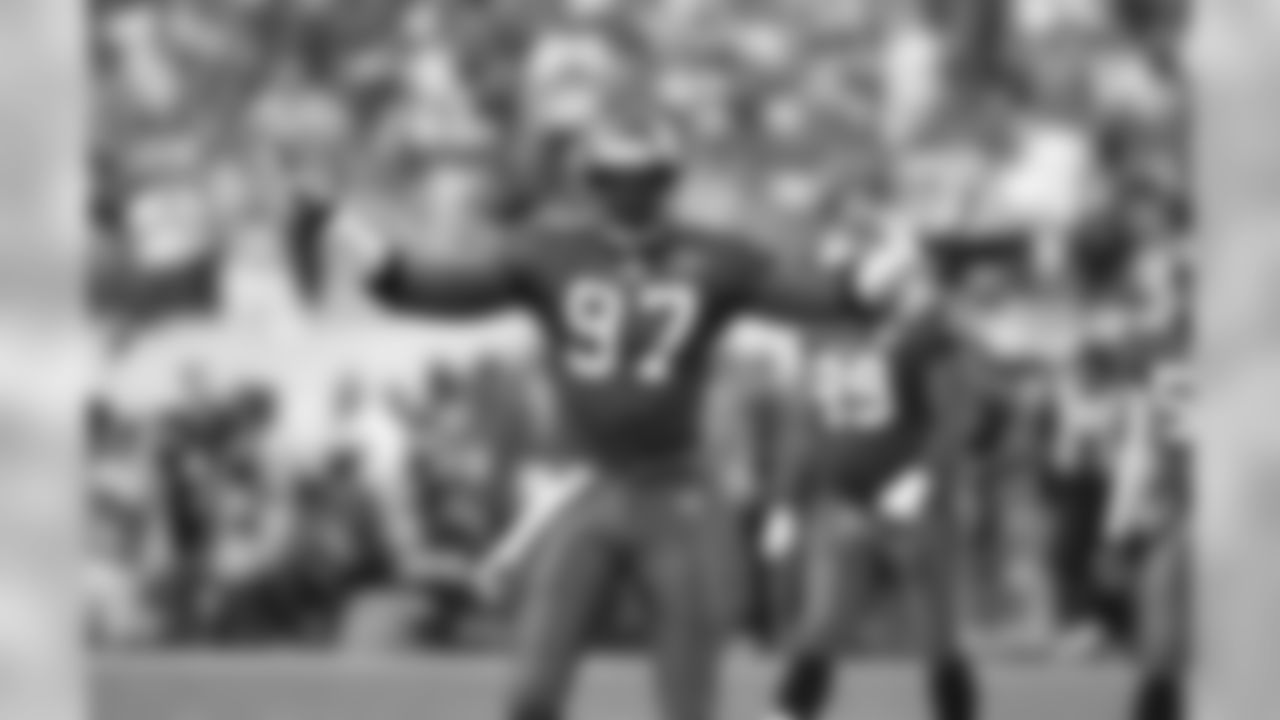

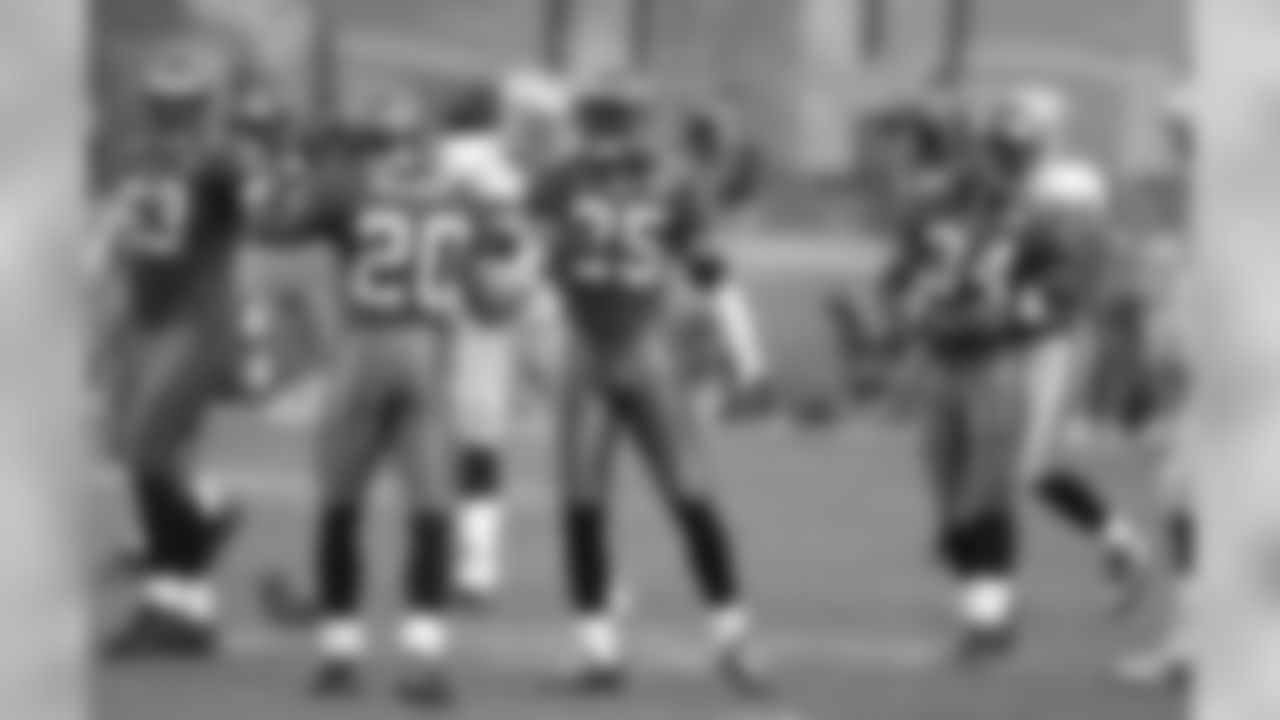
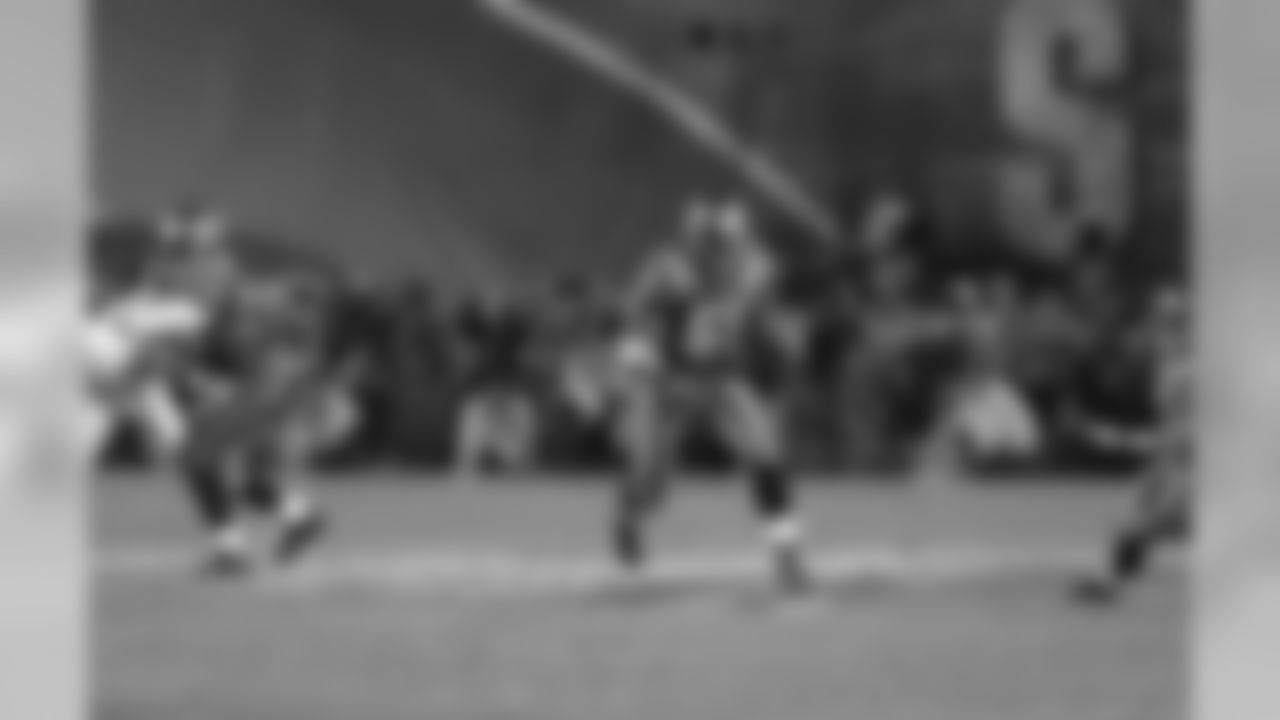





Originally posted: January 26, 2003*
The Tampa Bay Buccaneers are Super Bowl Champions.
Forget the details for now. Simply contemplate those eight words. Roll them around in your mouth. Open the door, if you must, and scream them to your neighborhood. Feels good, doesn't it? Feels *right.
The Tampa Bay Buccaneers are Super Bowl Champions!*
"It's the greatest thing ever," said Head Coach Jon Gruden. "This is for our fans and our players. It's awesome. Hopefully, we earned a lot of respect today."
The quest that Malcolm Glazer began on January 16, 1995, just a few short months before future Hall of Famers DT Warren Sapp and LB Derrick Brooks were drafted, was realized on January 26, 2003 in Super Bowl XXXVII. The Buccaneers beat the Oakland Raiders, 48-21, to become World Champs for the first time in the franchise's 27-year history.
How perfect was this ending? In the first victory in franchise history, at New Orleans on 12/11/77, following a 26-game losing streak, the Buccaneers returned a team-record three interceptions for touchdowns. Sunday, in their first Super Bowl, the Bucs once again scored on three picks, coming full circle from those orange-infused days of strife.
Those days are now long gone, thanks to the direction of new ownership. Glazer and his family made every necessary move in the eight years that followed that January 16 press conference. They scoured every corner of the once downtrodden franchise and upgraded nearly every aspect of the team. Last February, they pried Gruden away from those very Raiders, and that proved to the be the final piece of the puzzle.
Gruden's masterful coaching throughout the 2002 playoffs came to a head in the Super Bowl as the Bucs always seemed to make the right call at the right time.
Case in point – a play you won't hear about in most wrap ups of Super Bowl XXXVII, a third-and-seven from the Bucs' 23 with 5:17 left in the game. Tampa Bay was trying to hold off a Raider rally and simultaneously burn off the rest of the clock. A run would have been safe; a pass was a risk that might stop the clock but might lead to a first down. Gruden chose to throw, and FB Mike Alstott's nine-yard catch allowed Tampa Bay to eat three more minutes off the clock. The Raider rally was dead.
In addition, some of the important pieces that Gruden brought in for his offense came up big – RB Michael Pittman, WR Keenan McCardell and WR Joe Jurevicius. More on that later.
Because when it came down to it, this was the defense's day once again. They simply would not be denied a date with destiny. Facing the league's most-potent offense in the first-ever Super Bowl matchup of the league's top-rated offense and defense, the Bucs' D surrendered just 269 yards, only 78 by the time Tampa Bay had built a 34-3 lead. The Bucs controlled the clock for over 37 of the 60 game minutes.
Tampa Bay's defense under coordinator Monte Kiffin now clearly deserves mention alongside Pittsburgh's Steel Curtain of the 1970s, the Chicago Bears of 1985 and the 2000 Baltimore Ravens as the best ever. After joining the '85 Bears as the only teams in NFL history to lead the NFL in yards allowed, points allowed and interceptions in the same season, the Bucs racked up five interceptions and five sacks in stifling Rich Gannon and company.
The Bucs' startling defensive effort was not just the product of star turns by the usual suspects – Derrick Brooks, Warren Sapp, Simeon Rice and Ronde Barber. Jackson became the first player in Super Bowl history to record two interceptions in the first half of a game, and Spires had three tackles, a sack, a pass defensed and the pressure that led to the first interception in the first half alone. CB Dwight Smith had the game's biggest play, a 44-yard interception return for a touchdown in the third quarter, then scored again in the closing seconds. Smith's 50-yard score on a tipped ball came at the very moment that Jackson was being announced as the MVP of Super Bowl XXXVII.
Those long-time Bucs did make their mark, however, particularly when the Bucs really needed it at the end. With Oakland trying to continue its fourth-quarter comeback, Sapp sacked Gannon for a nine-yard loss and Brooks intercepted his next pass, returning it 44 yards for a touchdown. Brooks, the NFL Defensive Player of the Year, scored four touchdowns during the regular season. DE Simeon Rice, the NFC leader with 15.5 sacks, had two more in the Super Bowl to give him four in the postseason.
Meanwhile, the Bucs added the clincher with a strong running game and another fine performance by a once-beleaguered offensive line. Pittman, a San Diego native, racked up his first 100-yard rushing game as a Buccaneer, gaining 124 yards on 29 carries. QB Brad Johnson was not sacked for the second straight game; Tampa Bay's offensive allowed just one sack in the playoffs.
The Bucs out-rushed Oakland, 150 yards to 19.
The Bucs' defensive domination was nearly total in the first half, allowing Tampa Bay to build a 20-3 lead after Oakland had scored on its first possession. In the second half, Tampa Bay extended its streak to 34 unanswered points before Oakland finally found the end zone with two minutes left in the third quarter.
Just as in Philly a week before, the Bucs made an early mistake but recovered quickly. QB Brad Johnson's third pass of the game was intercepted by CB Charles Woodson in what appeared to be a miscommunication between Johnson and WR Keenan McCardell. The Bucs' defense, however, wouldn't let the Raiders turn that takeaway in Bucs territory into a touchdown, forcing a 40-yard field goal by Sebastian Janikowski. DE Simeon Rice sacked QB Rich Gannon on third-and-short to lead to the field goal try.
And, as in Philly, the Bucs immediately answered with a field-goal drive, covering 58 yards in nine plays. Much of the yardage was picked up on back-to-back 23-yard gains by WR Joe Jurevicius on a crossing route and RB Michael Pittman on a toss-sweep. The eventual result was Martin Gramatica's game-tying 31-yard field goal.
The Bucs ended the first period with their first takeaway, a Dexter Jackson interception of a pass thrown on the run by Gannon, after DE Greg Spires had flushed him from the pocket. That pick turned into a 27-yard field goal drive and a 6-3 Bucs lead, although a second straight failure to get the ball in the end zone was a brief concern.
Emphasize brief. Another Jackson interception a few minutes later on a deep pass intended for WR Jerry Porter didn't lead to an immediate score, but it did turn the field position around when Jackson returned the pick 25 yards to midfield. After an exchange of punts, WR Karl Williams set the Bucs up at the Raiders' 27 with a 25-yard punt return. Four running plays later, the Bucs were in the end zone for the first time. The big play was Pittman's sweet, 19-yard cutback run, but FB Mike Alstott finished it with a two-yard plunge up the middle.
A look at fullback Mike Alstott's career.


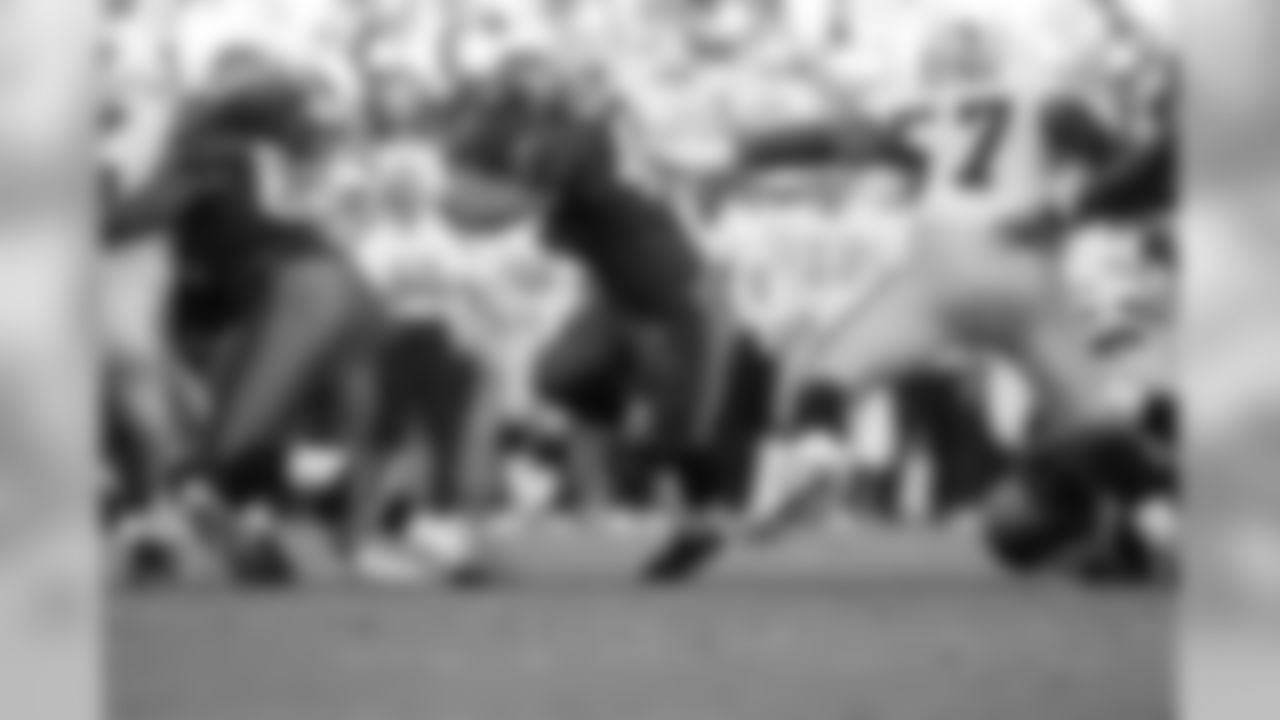
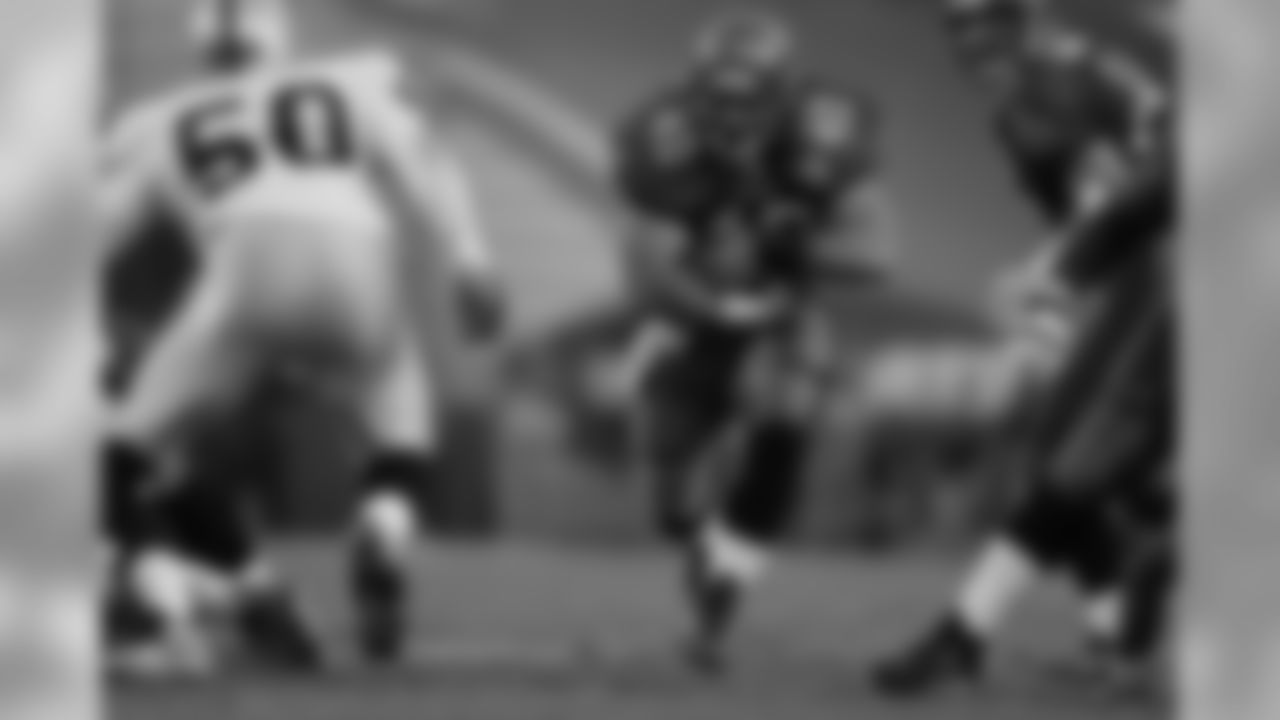
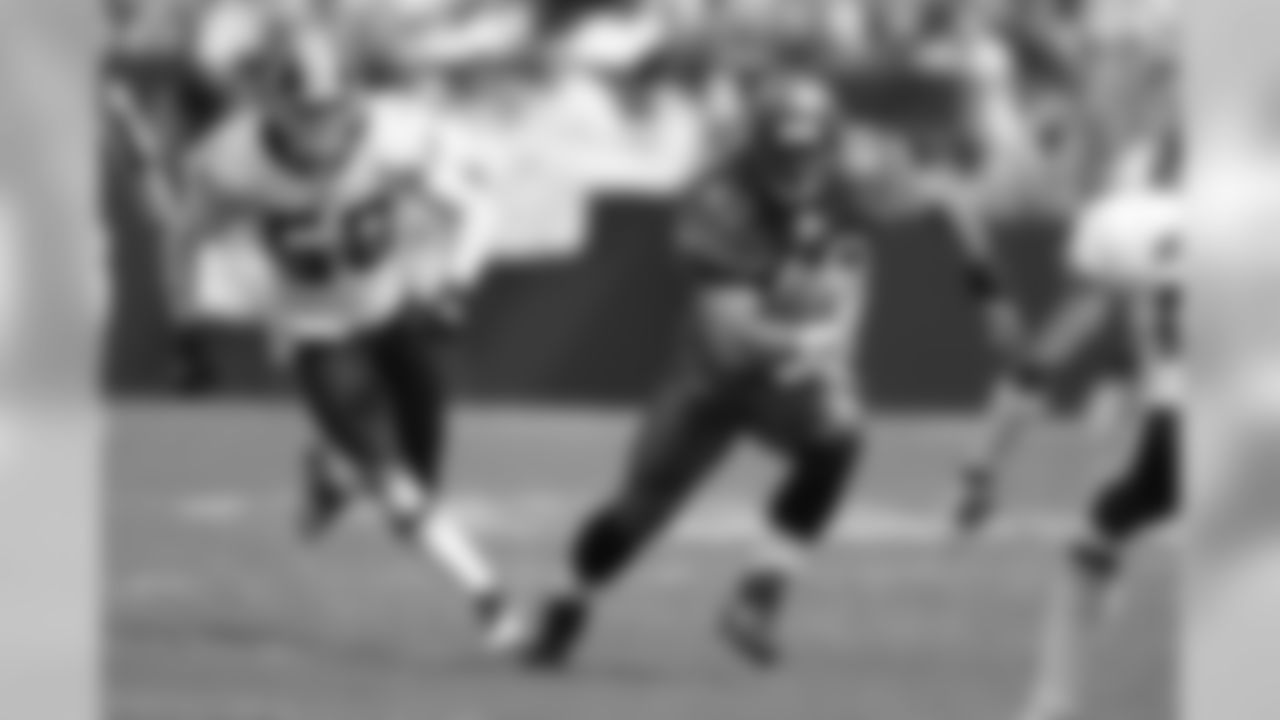
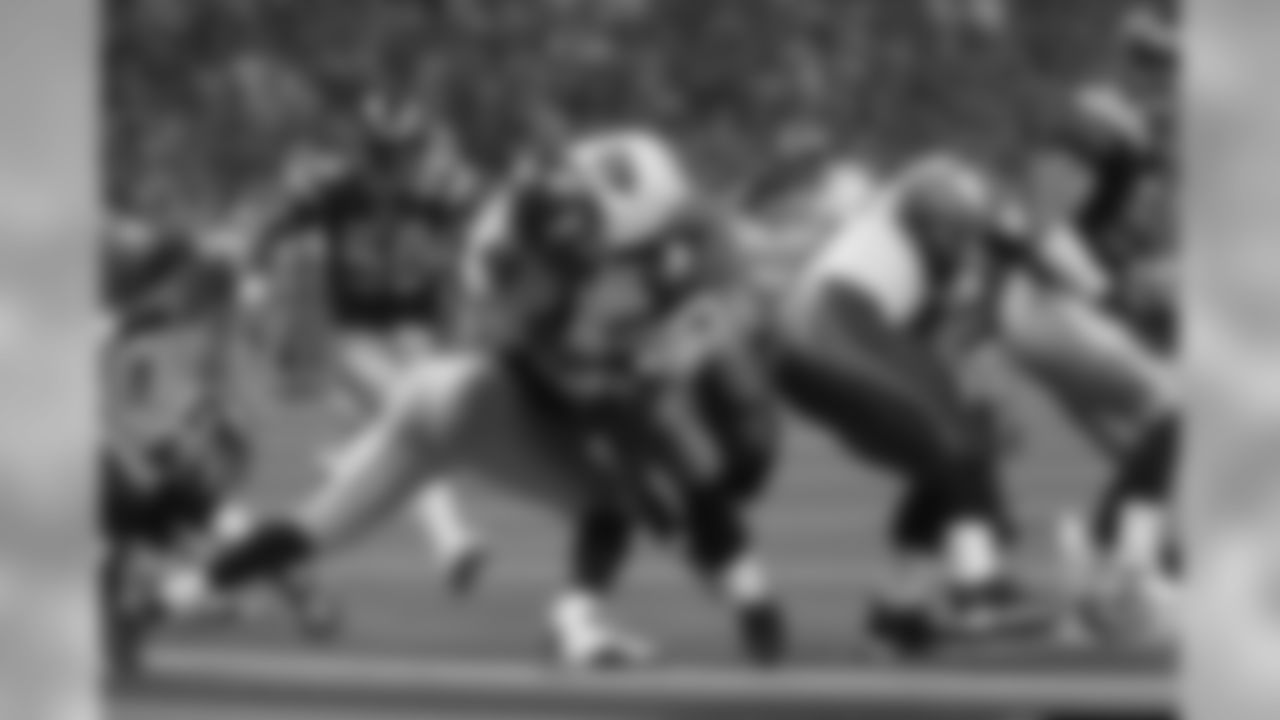
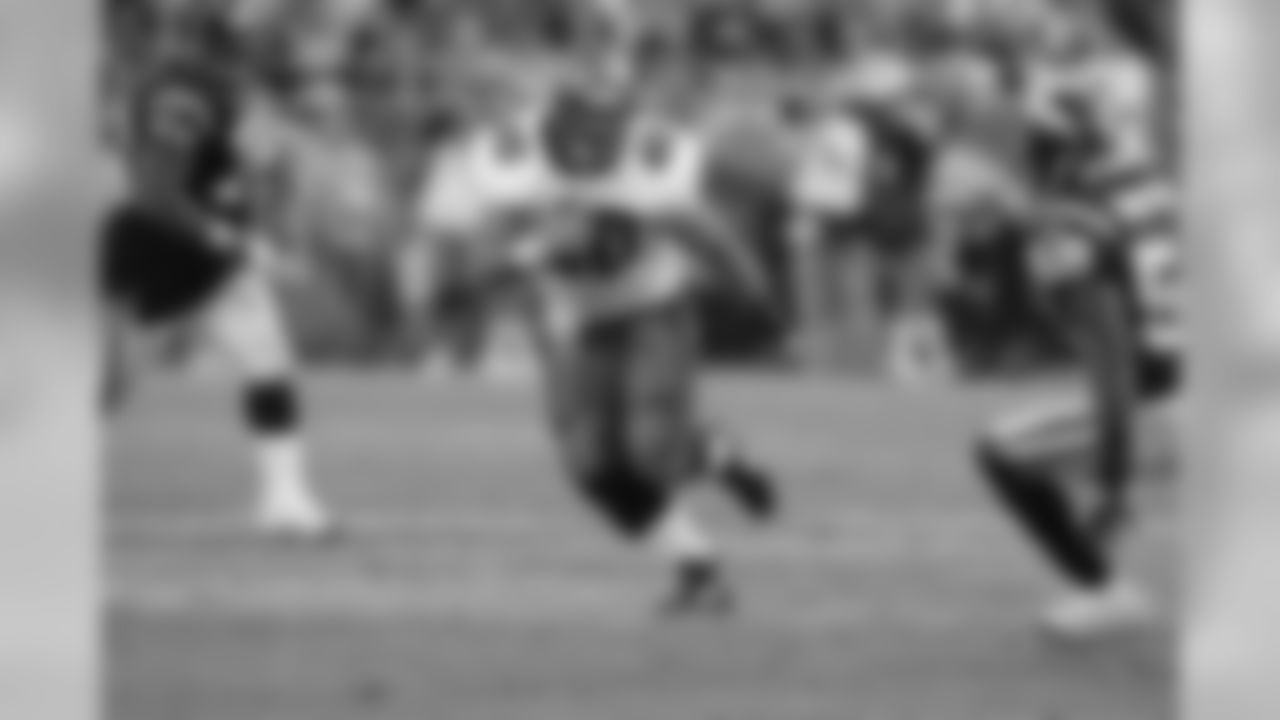
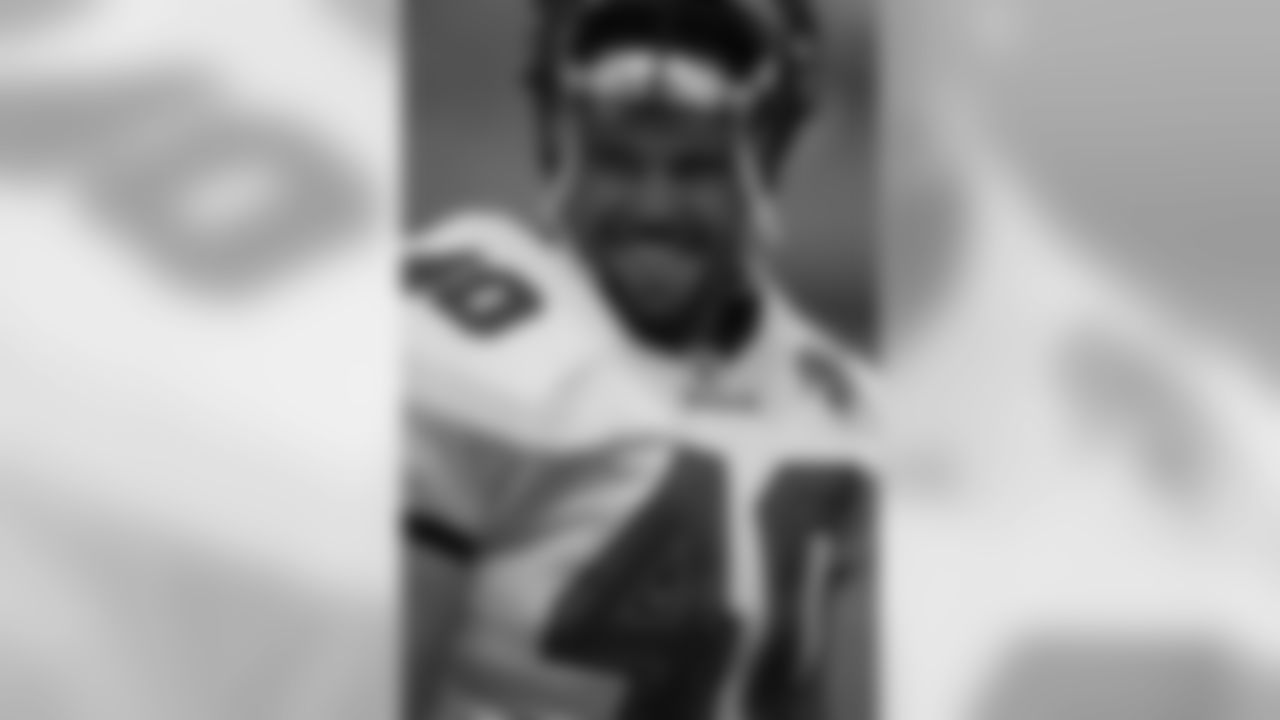
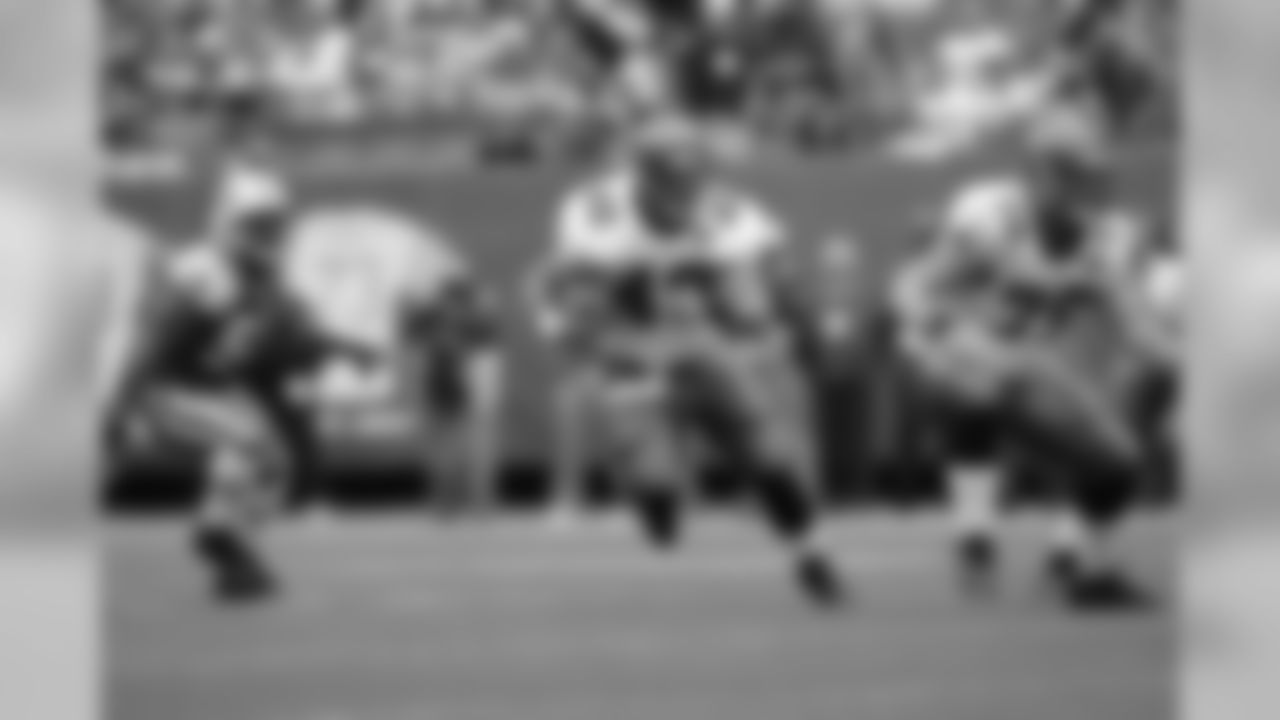
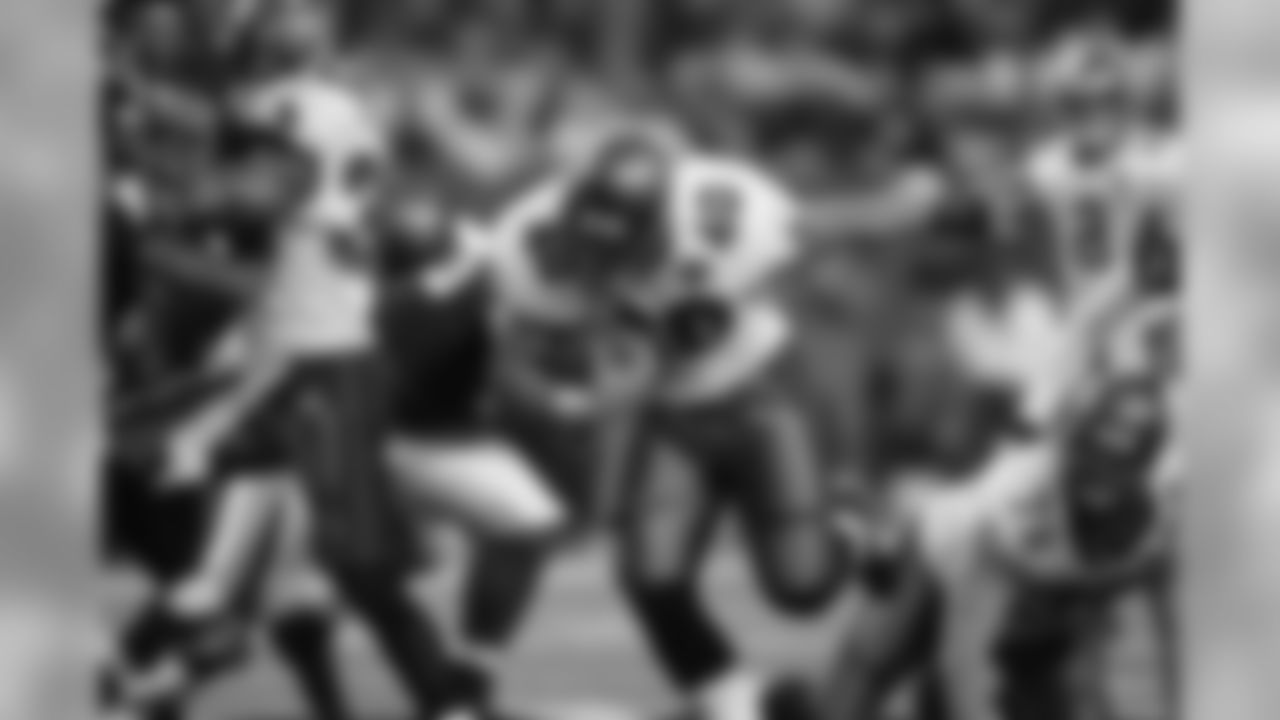



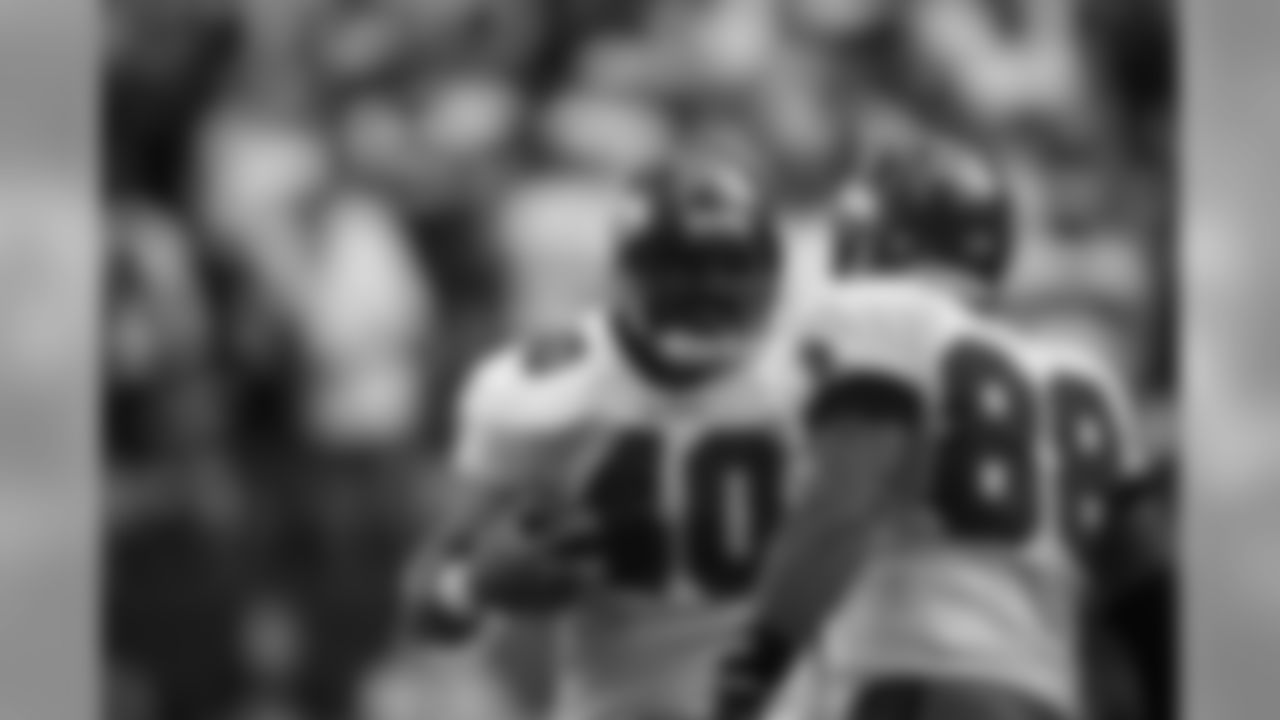
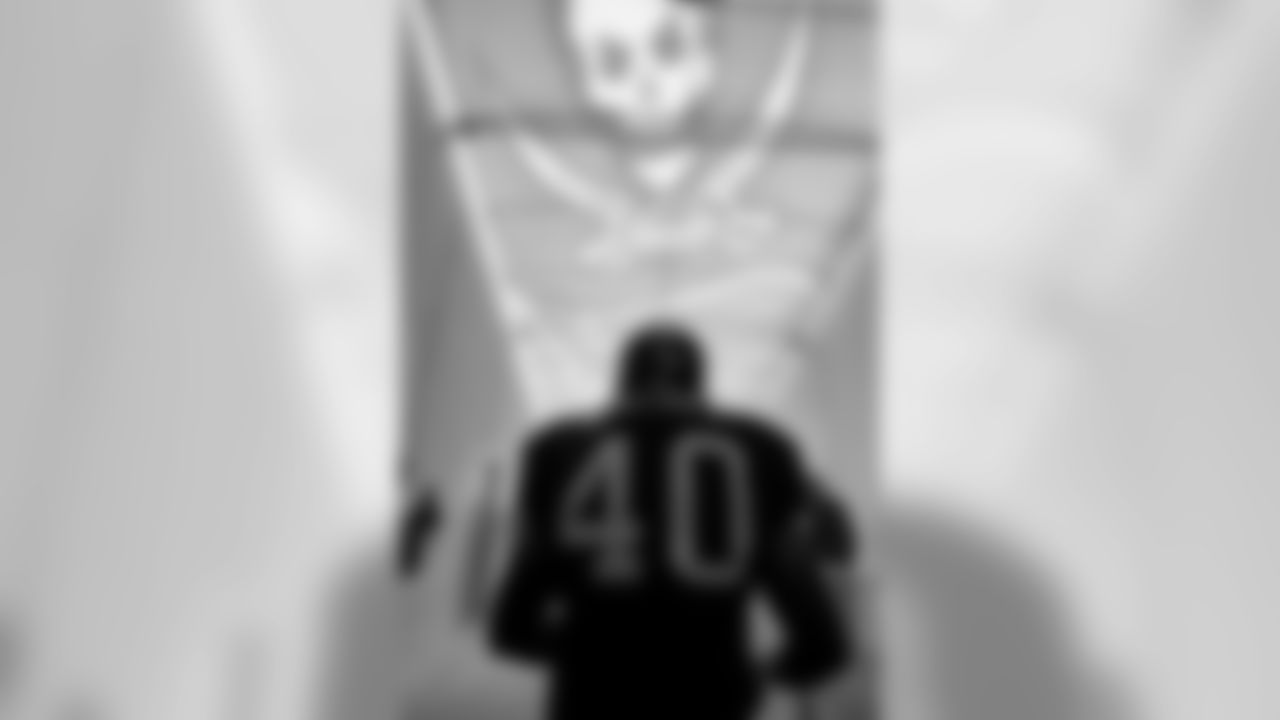
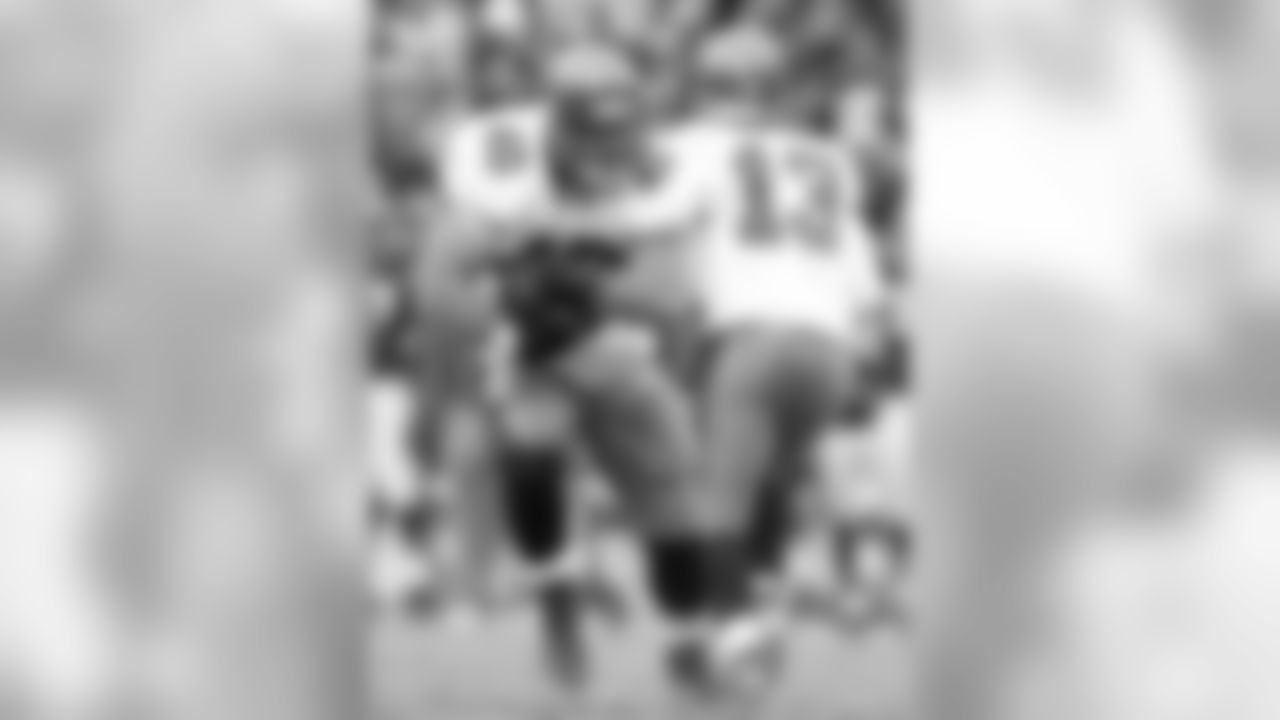
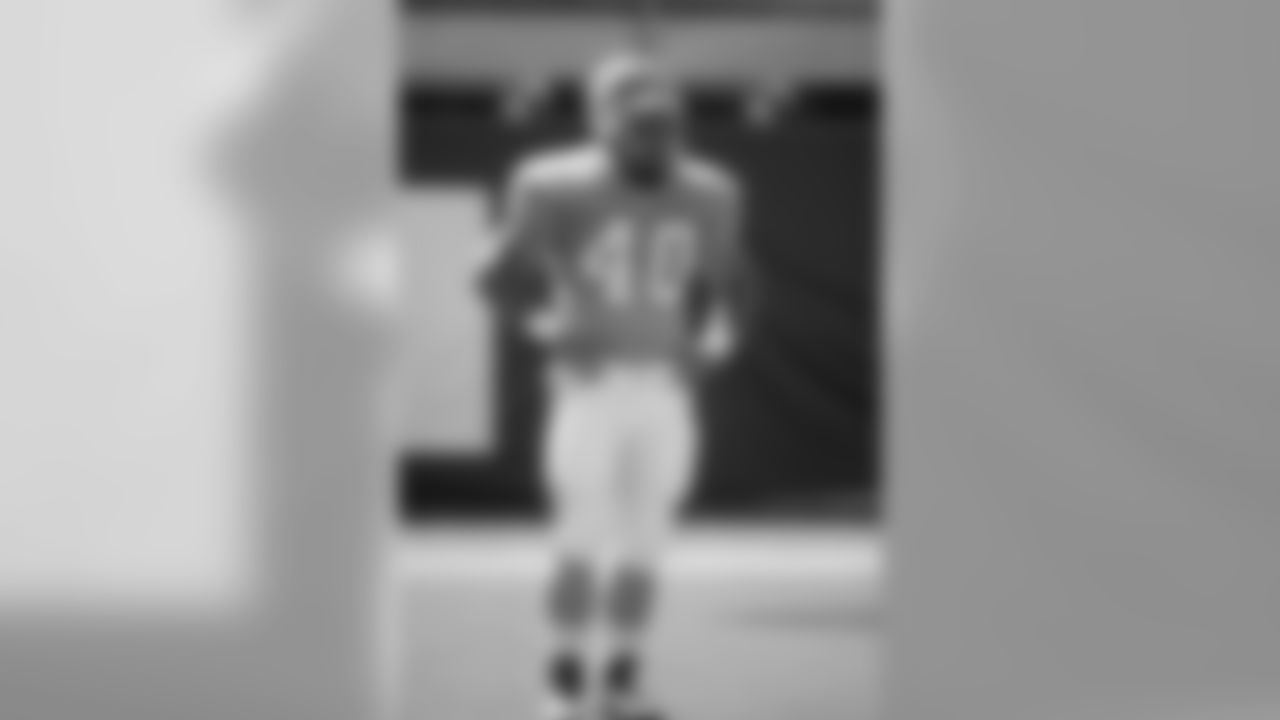
After Alstott's touchdown, the Raiders got the ball back almost to midfield but had to punt it away. Tampa Bay then launched the only sustained drive of the first half, a 77-yard march that ended in WR Keenan McCardell's five-yard touchdown reception. The drive consumed nearly all of the last four minutes of the half, helped immensely by a 16-yard Alstott catch-and-run and WR Keyshawn Johnson's impressive, sliding catch of a pass thrown behind him.
A few more of Brad Johnson's first-half passes were a little off-line, as the Bucs' passing game struggled a bit early. Johnson completed just 10 of his first 24 passes, but came on strong on the last drive, hitting on four of five, including a perfectly-thrown stop route on McCardell's touchdown.
Even with those 14 incompletions, the Bucs had a commanding 20-3 lead at the half. At that point, the Bucs had out-gained the NFL's top-ranked offense, 198 yards to 62, and held the league MVP, Rich Gannon, to 56 yards on 7-of-17 passing. Jerry Rice did not catch a pass in the first half and Tim Brown had just one for nine yards. More importantly, Tampa Bay had an 85-18 rushing edge at the break.
Those 62 yards were the second fewest ever allowed before halftime of a Super Bowl. That '85 Chicago squad had New England at -19 when the first half ended in Super Bowl XX.
No Bill Callahan halftime speech could have possibly countered the Bucs' steadily building momentum. Tampa Bay held Oakland to a three-and-out on the opening possession of the third quarter – with CB Brian Kelly batting away a third-down pass – and the Bucs' offense responded with an 89-yard touchdown drive. The march consumed nearly eight minutes on 14 plays, giving Tampa Bay a seemingly insurmountable, 27-3 lead with five minutes left in the third quarter.
McCardell is the former Jaguar that Gruden pursued relentlessly when Jacksonville cut him for salary cap reasons in June. McCardell chose the Bucs over Kansas City in order to play in Gruden's offense, and Gruden wanted the receiver because of his veteran savvy. Though McCardell caught only two passes on the day, both went for touchdowns and both displayed that very savvy. On the second pass, McCardell felt S Anthony Dorsett closing and spun away to trot easily into the end zone.
Smith then appeared to seal the Bucs' victory with the game's biggest defensive play. Two snaps after McCardell's second score, the second-year corner cut in front of a deep out intended for WR Jerry Rice, intercepted the pass, kept his fight after a hit by Rice spun him around and raced 44 yards to the end zone to make it 34-3 Tampa Bay.
The Raiders did mount something of a comeback at that point, thanks to a string of big plays. WR Jerry Porter hauled in a 39-yard touchdown pass at the back of the end zone near the end of the third quarter, though the play was originally ruled incomplete, then reversed. Three minutes later, just into the fourth period, LB Tim Johnson blocked a Tom Tupa punt and returned it 13 yards for a touchdown. The Raiders went for two both times and failed, leaving the Bucs' lead at 34-15.
Giving the enormity of the game, there were probably a few fingernails being chewed in Tampa at this point, but the Bucs seemed to turn the momentum back on their next drive, moving down to the Raiders' 11-yard line and draining the clock down to nine minutes. However, the drive failed to produce points when holder Tom Tupa dropped the snap on a 27-yard field goal try.
The Raiders came right back with a 78-yard touchdown drive, and the game was suddenly in question. On third-and-13 from the Bucs' 48, Gannon found venerable WR wide open over the middle for a 48-yard touchdown pass. After another two-point try failed, the score was 34-21 with six minutes left and nerves were definitely flaring.
However, Alstott's big third-down play and two more defensive stands turned the final into a blowout. Tampa Bay equaled its highest point total in any regular season or postseason game.
Brad Johnson completed 18 of 34 passes for 215 yards, two touchdowns and one interception. WR Joe Jurevicius, playing for his newborn son Michael, turned in 78 yards on four receptions.
NOTES:
- One week after winning for just the second time in a game played under 40 degrees, the Bucs played in the second-hottest Super Bowl of all time. Sunday in San Diego approached the warmest kickoff temperature ever for a Super Bowl, 84 degrees at Super Bowl VII in Los Angeles. The kickoff temperature for Super Bowl XXXVII was 82 degrees.
- Among the celebrities located on the sidelines and in the stands by ABC's cameras before the Super Bowl were Adam Sandler, Arnold Schwarzenegger and Jennifer Garner.
- FB Mike Alstott's two-yard touchdown run in the second quarter was his fourth of the 2002 postseason. He has now scored a touchdown in all three of the Bucs' playoff games.
- CB Dwight Smith became the seventh player in Super Bowl history to return an interception for a touchdown with his 44-yard play in the third quarter. He is the second in as man Super Bowls, however, as New England CB Ty Law had a 47-yard interception return touchdown last year against St. Louis.
- The blocked punt in the fourth quarter was the first against P Tom Tupa since he played for the New England Patriots in 1997.
- The last punt blocked in a Super Bowl was in Super Bowl XXXVII. The last time a blocked punt was returned for a touchdown was in Super Bowl XVIII.
- WR Jerry Rice, at 40 years, three months and 13 days, became the oldest player ever to score a Super Bowl touchdown with his 48-yarder in the fourth quarter.
- Jon Gruden is the youngest head coach to win a Super Bowl.


